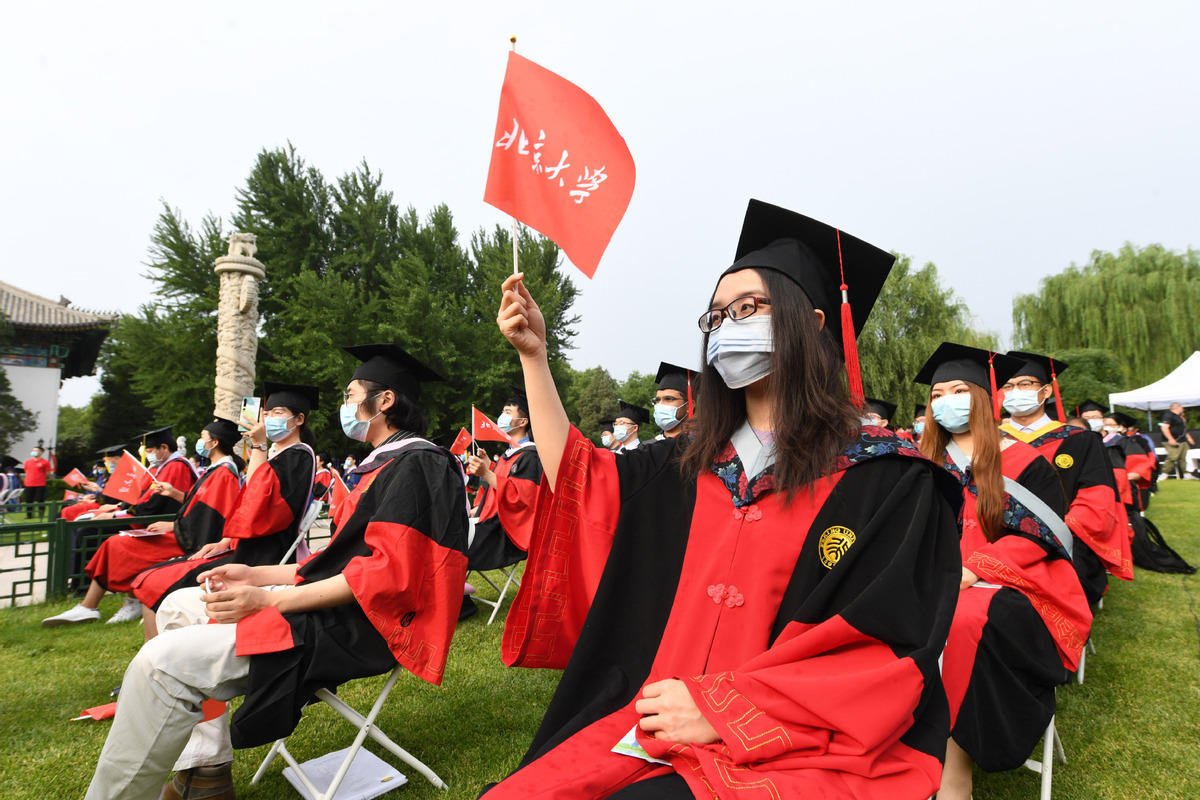
Students attend a graduation ceremony at Peking University on July 2. (Photo: Xinhua)
Overemphasis on degrees from top universities wrong
Xiong Bingqi, deputy director of the 21st Century Education Research Institute
Many Chinese people believe that just by enrolling in Peking University or Tsinghua University, a student is ensured of a bright future and a decent job. For such people, excelling in the college entrance exam, or gaokao, and qualifying to seek admission to either of the country's top two universities is in itself a great academic triumph.
That's why the decision of those postgraduates and PhD holders to work in grassroots communities has surprised many people, sparking debates online. Yet the fact is, the district in the eastern coastal city has been hiring students from the two universities since 2017.
Such public debates have their root in the aura created around the graduates from famous universities. Excessive emphasis on such universities' diplomas will further intensify competition in gaokao, causing more damage to the higher education system. It's not uncommon to see some good, hardworking students in high school perform below par after entering a good college, because they are sure of graduating and landing a good job. Such a higher education system undermines talent quality.
The craze to get admitted to a famous university should be curbed, especially when higher education is no longer the realm of a chosen few-for example, more than 10 million of the 10.7 million students who took gaokao this year will qualify to enroll in colleges. Besides, university students account for more than a half of the total population of 18-22-year olds in the country.
There is a need for society to accord high priority to talent quality over diploma. After all, learning is a life-long journey.
Youth should serve society and country
Chu Zhaohui, a researcher at the National Institute of Education Sciences
It's wrong to consider all graduates, postgraduates and PhD holders from Peking University, Tsinghua University or other top universities as high-quality talents, because many of them could be mediocre students, may not understand the value of education and/or lack expertise and life skills.
It's also unfair to belittle jobs at the grassroots level, because they can serve as a platform for going on to do greater things. The stereotype of taking all top university students as crème a la crème among job seekers is what has led to the present controversy.
The truth is that utilitarianism sometimes comes first in job hunting. Instead of following their interests and ambitions, some college graduates tend to opt for high earnings and/or stability when applying for a job.
Actually, it's a waste of social resources to hire overqualified candidates for jobs that can be done by relatively less qualified people. This also hampers social progress. But some employers, rather than recruiting those who best fit the occupation, blindly chase candidates with degrees from reputable universities. For example, some graduates from Peking University and Tsinghua University hired by Yuhang district majored in biology or chemistry which doesn't come anywhere close to the actual requirement of the work.
It's good to see that a growing number of highly qualified youths are ready to work at the grassroots level. As a developed part of the country, Yuhang district is capable of attracting talents with salaries and subsidies for housing. But rural areas are much more in need of talents and funds to develop.
The youth should stick to their aspiration, share social responsibilities and use their knowledge to serve society and the country, rather than be obsessed with getting high-paying jobs.


